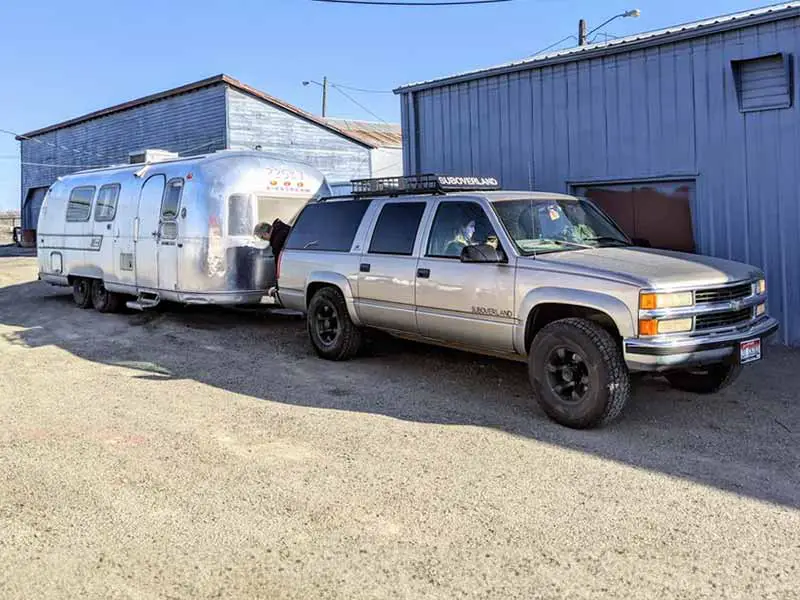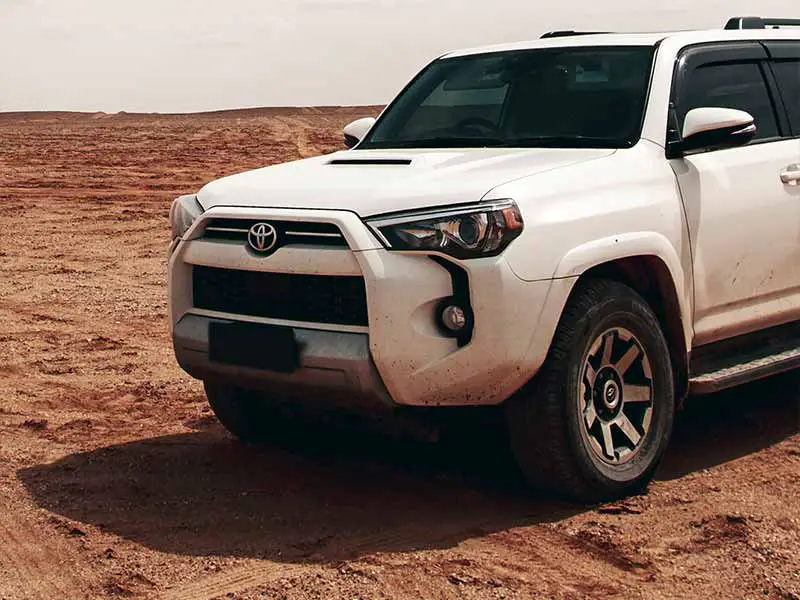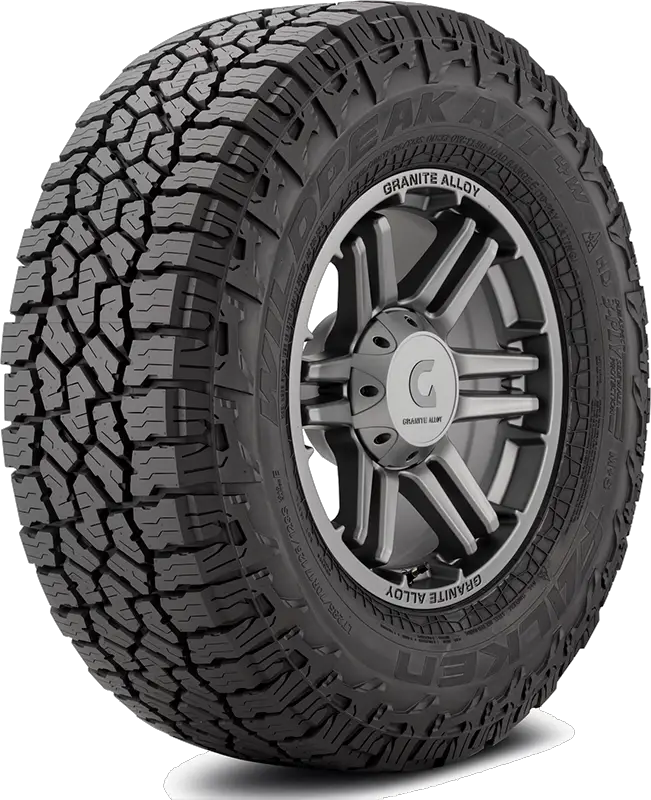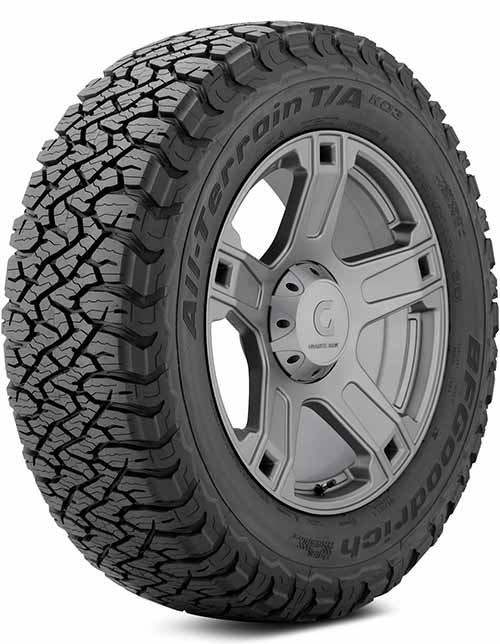As a truck owner, it might seem puzzling: how can two tires look so similar yet be so different? If you’ve scratched your head trying to figure out the real differences between LT and AT tires, and why it even matters, let’s get into the nitty-gritty together and clear up the mud!
What Is The Difference Between AT And LT Tires?
AT tires are versatile, great for various roads like smooth city streets, bumpy country paths, and even some off-road terrains like dirt and gravel.
LT tires are built with strong sidewalls, ideal for trucks and larger vehicles that need to tow trailers or haul heavy items like furniture, equipment, or large loads, providing stability and strength to manage the extra weight safely.
In this article, we’ll talk about the main things you need to know about AT and LT tires, helping you pick the right one for your vehicle.
Let’s take a closer look.

What Are AT Tires?
AT tires, or All-Terrain tires, are a type of tire designed to perform well on many different kinds of surfaces. These tires can handle the pavement of city streets, the roughness of country roads, and even some off-road conditions like dirt and gravel. Let’s dive into understanding more about AT tires in a simple way.
- All-Terrain Tires: These tires are made to be used on all kinds of roads and paths.
- Versatile: They can go on the city streets and also on rough, country roads.
- Tough: They are built to handle different weather and road conditions.
Why Choose AT Tires?
Good on Different Roads
- AT tires can go on smooth roads and bumpy ones too.
- They can handle wet roads, dry paths, and even some snowy conditions.
Safe and Steady
- These tires are made to keep your car steady, even on a bumpy road.
- They have a special pattern on them that helps grip the road and prevent slipping.
Ready for Adventure
- If you like to go on adventures, AT tires are ready to take you there.
- They can handle paths in the woods, dirt roads, and other fun places.
Things to Keep in Mind
Not Always Quiet
- AT tires can sometimes be a bit noisy on smooth, city roads.
- You might hear a humming sound when you drive.
Wear and Tear
- Using AT tires on very rough roads often can make them wear out a bit faster.
- It’s important to check them regularly to make sure they are in good shape.

What Are LT Tires?
LT tires, which stand for Light Truck tires, are special tires made for vehicles that carry heavy things. These might be trucks, vans, or SUVs that need to haul big loads or pull trailers. Let’s explore more about LT tires in a simple and clear way.
- Light Truck Tires: These tires are made for vehicles like trucks and SUVs.
- Strong and Sturdy: LT tires are built to carry heavy things without a problem.
- For Bigger Vehicles: They are usually chosen for vehicles that need to pull or carry big loads.
Why Pick LT Tires?
Carry Heavy Loads Safely
- LT tires are designed to safely carry heavy stuff, like furniture or equipment.
- They can also help if you’re pulling a trailer behind your vehicle.
Durable and Tough
- These tires are made to last, even when carrying heavy things.
- They are built to handle the extra weight without wearing out too quickly.
Stable on the Road
- LT tires help keep your vehicle steady and stable, even with a heavy load.
- They are designed to prevent too much bouncing or swaying while driving.
Things to Remember
Might be Firmer
- LT tires can give a firmer, bouncier ride compared to other tires.
- You might feel the bumps in the road a bit more.
Fuel Use
- Sometimes, vehicles with LT tires might use a bit more fuel.
- The strong build of the tires can make the vehicle use extra energy.

AT vs LT Tires: A Comparative Analysis
When it comes to choosing tires, it’s essential to pick the right type for your vehicle and your driving needs. Both AT (All-Terrain) and LT (Light Truck) tires have their own special features and uses. Let’s explore the differences between AT and LT tires in a straightforward and easy-to-understand manner.
Key Differences
Where They Work Best
- AT Tires: Good for many types of roads, like city streets and rough country paths.
- LT Tires: Best for vehicles that need to carry or pull heavy things.
How They Feel When Driving
- AT Tires: Can be used for a smooth and quiet ride in the city and also handle rough paths.
- LT Tires: Might feel a bit firmer and bouncier, especially on rough roads.
Comparing the Benefits
AT Tires: Versatility is Key
- Go Anywhere: They can handle city streets and off-road paths.
- Steady and Safe: Designed to keep your vehicle steady on different kinds of surfaces.
- Adventure-Friendly: Great for vehicles that explore different terrains.
LT Tires: Strength and Stability
- Carry Heavy Loads: Built to handle heavy weights safely.
- Durable: Made to last, even with regular heavy lifting.
- Stable: Helps keep your vehicle steady, even with a big load.
When to Choose Which Tire
Choose AT Tires When:
- You drive on different types of roads often.
- You want a tire that can handle city driving and the occasional adventure.
- You prefer a balance between smooth driving and off-road capability.
Choose LT Tires When:
- You need to carry or pull heavy things regularly.
- Your vehicle is larger, like a truck or a big SUV.
- Stability with heavy loads is a top priority.
Things to Think About
Noise and Comfort
- AT Tires: Might be a bit quieter and comfier on city roads.
- LT Tires: Could be noisier and feel bouncier, especially when not carrying heavy loads.
Wear and Lifespan
- AT Tires: Might wear out a bit faster if used often on rough terrains.
- LT Tires: Built to handle wear and tear, especially from heavy loads.

Making the Right Choice for Your Vehicle
Choosing the right tire is crucial for safe and efficient driving. Whether it’s AT (All-Terrain) or LT (Light Truck) tires, your choice should align with your vehicle type and driving habits. Let’s explore how to make the right tire choice in a straightforward and uncomplicated way.
Factors to Consider
Your Vehicle Type
- Cars and Small SUVs: Might often benefit from AT tires for varied road conditions.
- Trucks and Large SUVs: LT tires might be suitable, especially if carrying or towing heavy loads.
Where You Drive
- City and Country Roads: AT tires can handle both smooth and rough paths.
- Heavy Hauling: LT tires are designed to manage heavy loads and provide stability.
Your Driving Habits
- Adventurous Driving: AT tires are versatile for different terrains.
- Transporting Heavy Items: LT tires are robust and durable for heavy-duty tasks.
Practical Tips for Choosing Tires
Check Your Manual
- Your vehicle’s manual will suggest the right type and size of tire.
Consider the Weather
- Think about the weather and road conditions where you live and drive.
Think About Comfort
- Consider what will give you a comfortable ride based on your regular routes.

Real-World Applications and User Experiences
Choosing the right tire, whether AT (All-Terrain) or LT (Light Truck), has real-world implications that can significantly impact your driving experience. Let’s explore some real-life situations and user experiences in a clear and simple manner.
Stories from the Road
Case Study 1: The Adventure Seeker
- Driving Needs: Exploring various terrains, from city streets to off-road trails.
- Tire Choice: AT tires for their versatility and capability on different surfaces.
- Experience: Found that AT tires provided a balanced and reliable performance on both smooth roads and rough paths.
Case Study 2: The Mover
- Driving Needs: Regularly moving heavy items and occasionally towing trailers.
- Tire Choice: LT tires for their strength and ability to handle heavy loads.
- Experience: Appreciated the stability and durability of LT tires when carrying heavy items, providing a sense of safety and reliability.
Case Study 3: The Daily Commuter
- Driving Needs: Predominantly city driving with occasional long-distance travel.
- Tire Choice: AT tires for a comfortable ride in the city and capability on country roads.
- Experience: Enjoyed the quiet and smooth ride in the city, while appreciating the grip and stability on occasional rough paths.
Learning from Experiences
Consider Your Own Needs
- Think about your regular driving conditions and any special requirements you might have.
Learn from Others
- Listen to stories and experiences from other drivers with similar driving habits.
Test and Try
- Sometimes trying out a set of tires can provide valuable insights into their performance and suitability.
Making Informed Decisions
Gather Information
- Learn as much as you can from user experiences and professional reviews.
Consult Professionals
- Speak to tire experts and mechanics who can guide you based on your specific needs.
Prioritize Safety
- Always prioritize safety and ensure the chosen tire aligns with your vehicle’s specifications and your driving conditions.
Resources
Below are some links you may find helpful when learning about tires
- Everything you need to know about LT tires – Capital One
- The difference between AT, RT and MT tires – Tire Review
Final Thoughts
AT tires, with their ability to handle city streets and rough paths, offer a versatile choice for various driving adventures. Meanwhile, LT tires stand out when it comes to doing the heavy lifting and towing, ensuring your truck can safely carry all that important cargo.
Choosing the right tire type means thinking about your usual driving spots and what you’re hauling along the way. So, whether it’s the adaptable AT tire or the strong LT tire, keeping them in check ensures your drives stay smooth and safe.
Good luck and happy motoring.




